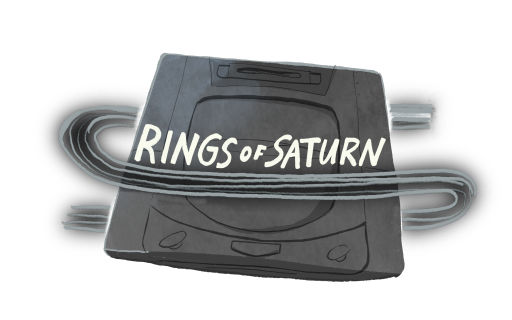Bonus: Developer Q&A, Hardcore 4x4
STEVE speaks!
Last week I ran this article on some secrets I found hiding in Hardcore 4x4, the off-road truck racing game from Gremlin Interactive. One of them was a cheat code that required you to name yourself STEVE, and I correctly guessed that this referred to Steve Camber, one of the game’s developers.
Steve and I connected, and he agreed to answer some questions about game development at Gremlin in the 1990s and what he’s working on lately. Below is a slightly condensed version our exchange.
Q. Did you remember the STEVE cheat in Hardcore 4x4, and can you reveal any other codes or secrets that people missed in games that you worked on?
I had almost giving up waiting for someone to find everything. A couple of times I almost posted the full list to cheat code sites, but didn't want to deny somebody the fun of discovery. I don't know of any remaining unknown hidden features.
It's great to see the debug menu in action again, as I've not seen it since the 90s. These kinds of useful development debug menus have to get stripped out of games these days, which is a shame. As teams got bigger in the 90s along with their budgets, hiding Easter eggs without approval or leaving in debug features seemed increasingly unprofessional.
Q. Based on the hidden Easter eggs in Hardcore 4x4 and Actua Golf1, it seems like the developers at Gremlin were having fun working on games. Is that right? Was there optimism during that time, or did people feel like the glory days had already passed?
A. In the 90s at Gremlin, teams were growing in size and projects were getting bigger along with the budgets. This continual advancement brought excitement but continued the move away from the solo bedroom coders of the 80s.
The hours were often very long and with the average age of developers in their 20s plenty of fun was had in the office, however it was obvious it was becoming more of a serious business.
Q. What was your experience developing for the Saturn? Was it as hard to program for as others have said?
It was the first proper console I had worked on, so it was a fascinating experience. Of course, rendering quads instead of triangles raised some challenges when developing alongside the PlayStation team. I think the SDK I used was SGL, which did the job OK.
Finding the hardware divide feature, the two CPUs for parallel processing and an extra chunk of RAM were memorable moments and helped in trying to match the PlayStation performance.
Q. Did you work on any canceled projects that you wish had seen the light of day?
I don't recall working on any Saturn port that got cancelled. However, I started working on a Dreamcast version of UEFA Challenge which was unfortunately dropped.
Q. What are you working on now that you're excited about, personally and/or professionally?
In my free time over the last 20 years I have been studying the assembler code of Kick Off 2 on the Amiga, adding new features and fixing any remaining bugs. I've also transferred it to the PC to allow online gaming with all the opportunities that brings to allow fans to easily reconnect with the game.
Since the 80s I have always found multiplayer games to be the most enjoyable and these are often are sport related. Many weeks were spent with friends on 8 and 16 bit machines playing games such as Rocketball, International Karate, Speedball, Stunt Car Racer and Kick Off. Constantly gaining new skills to get the upper hand, or fighting back to get the win. Kick Off 2 is a great example of that. Even now, over 30 years later, there's still much to learn.
Outro
Many thanks to Steve Camber for taking the time to participate here. Check out Steve’s version of Kick Off 2 here!
If you like this sort of thing, check out my earlier Q&A with Joe Cain.
Lastly, vote for which games appear in next week’s reverse engineering article here.

More on Actua Golf later!






